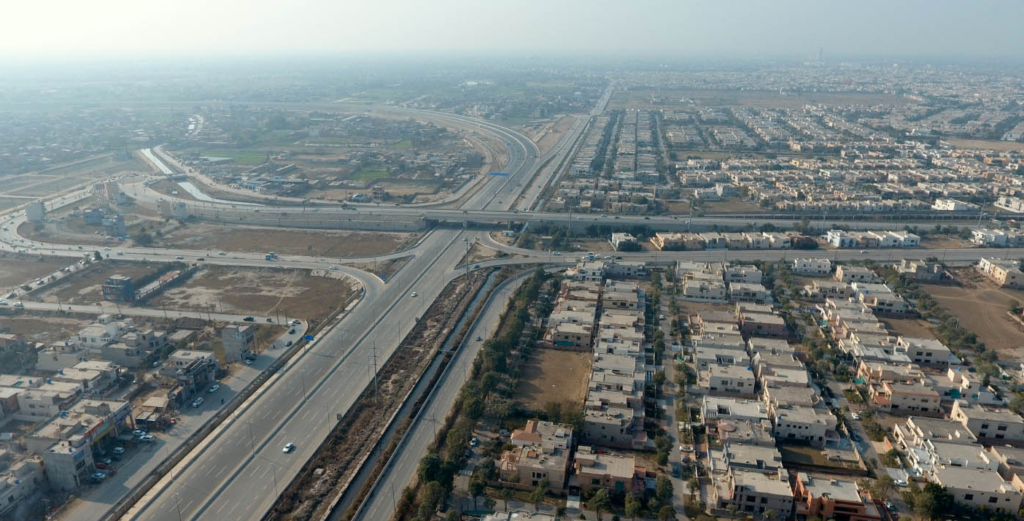
The growth of e-commerce has created a need for more efficient warehousing and distribution centers, leading to an increase in demand for industrial real estate. This type of real estate is typically zoned for heavy industry and is well-suited for businesses that require large spaces for storage, manufacturing, and distribution.
In this article, we will explore why industrial real estate is ideal for warehouses, manufacturing, and distribution centers. We will also discuss the different types of industrial properties and what to consider when choosing a location.
Why Industrial Real Estate is Ideal
Industrial real estate is designed to meet the needs of businesses that require large spaces for manufacturing, storage, and distribution. This type of real estate typically includes features such as high ceilings, loading docks, and ample parking. These features make industrial real estate ideal for businesses that need to store and move large quantities of goods efficiently.
Types of Industrial Real Estate
Industrial real estate can include a variety of property types, such as warehouses, manufacturing facilities, distribution centers, and research and development (R&D) facilities. Each type of property has its own unique features and requirements.
Choosing the Right Location

Choosing the right location is crucial when it comes to industrial real estate. Factors to consider include proximity to major highways and transportation hubs, access to a skilled workforce, and local zoning regulations.
Factors to Consider when Leasing or Buying Industrial Real Estate
When leasing or buying industrial real estate, it is important to consider factors such as the size and layout of the property, the condition of the building, and the terms of the lease or purchase agreement.
Tips for Finding Industrial Real Estate
Finding the right industrial real estate can be challenging, but there are several tips that can help. These include working with a commercial real estate agent, using online listings, and networking with other businesses in the industry.
Financing Options for Industrial Real Estate
Financing industrial real estate can be more challenging than financing other types of real estate due to the high cost and specialized nature of the properties. However, there are several financing options available, such as traditional bank loans, SBA loans, and commercial mortgage-backed securities (CMBS).
Common Challenges with Industrial Real Estate
Industrial real estate comes with its own set of challenges, such as environmental regulations, zoning restrictions, and the need for specialized equipment and infrastructure.
Sustainability in Industrial Real Estate

Sustainability is becoming an increasingly important consideration in industrial real estate. Some industrial properties are incorporating green technologies such as solar panels and energy-efficient lighting to reduce their environmental impact and lower operating costs.
Future of Industrial Real Estate
The future of industrial real estate looks bright, with continued growth expected in the e-commerce and logistics sectors. As technology continues to evolve, we can expect to see more automation and robotics in industrial facilities.
FAQs
What types of businesses are best suited for industrial real estate?
Industrial real estate is best suited for businesses that require large spaces for manufacturing, storage, and distribution. This includes businesses such as manufacturers, distributors, wholesalers, and e-commerce companies.
What are the advantages of industrial real estate?
Industrial real estate offers several advantages, including larger spaces for storage and manufacturing, higher ceilings, and loading docks for easier loading and unloading of goods.
What should I consider when leasing or buying industrial real estate?
When leasing or buying industrial real estate, you should consider factors such as the size and layout of the property, the condition of the building, the terms of the lease or purchase agreement, and the location.
What financing options are available for industrial real estate?
Financing options for industrial real estate include traditional bank loans, SBA loans, and commercial mortgage-backed securities (CMBS).
What are the common challenges associated with industrial real estate?
Common challenges associated with industrial real estate include environmental regulations, zoning restrictions, and the need for specialized equipment and infrastructure.
How can I find industrial real estate?
You can find industrial real estate by working with a commercial real estate agent, using online listings, and networking with other businesses in the industry.
What is the future of industrial real estate?
The future of industrial real estate looks bright, with continued growth expected in the e-commerce and logistics sectors. As technology continues to evolve, we can expect to see more automation and robotics in industrial facilities.
How can I ensure sustainability in industrial real estate?
To ensure sustainability in industrial real estate, businesses can incorporate green technologies such as solar panels and energy-efficient lighting to reduce their environmental impact and lower operating costs.
What are the benefits of choosing the right location for industrial real estate?
Choosing the right location for industrial real estate can provide benefits such as proximity to major highways and transportation hubs, access to a skilled workforce, and favorable zoning regulations.
Conclusion
Industrial real estate is an ideal choice for businesses that require large spaces for manufacturing, storage, and distribution. With the growth of e-commerce and logistics, demand for industrial real estate is expected to continue to rise. By considering factors such as location, financing, and sustainability, businesses can find the perfect industrial real estate to meet their needs and thrive in today’s competitive market.
